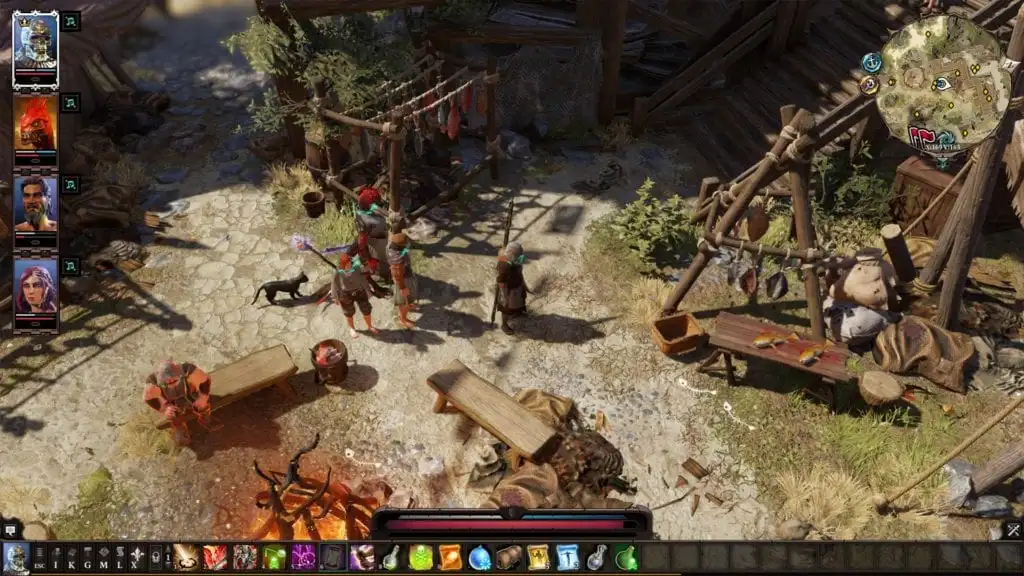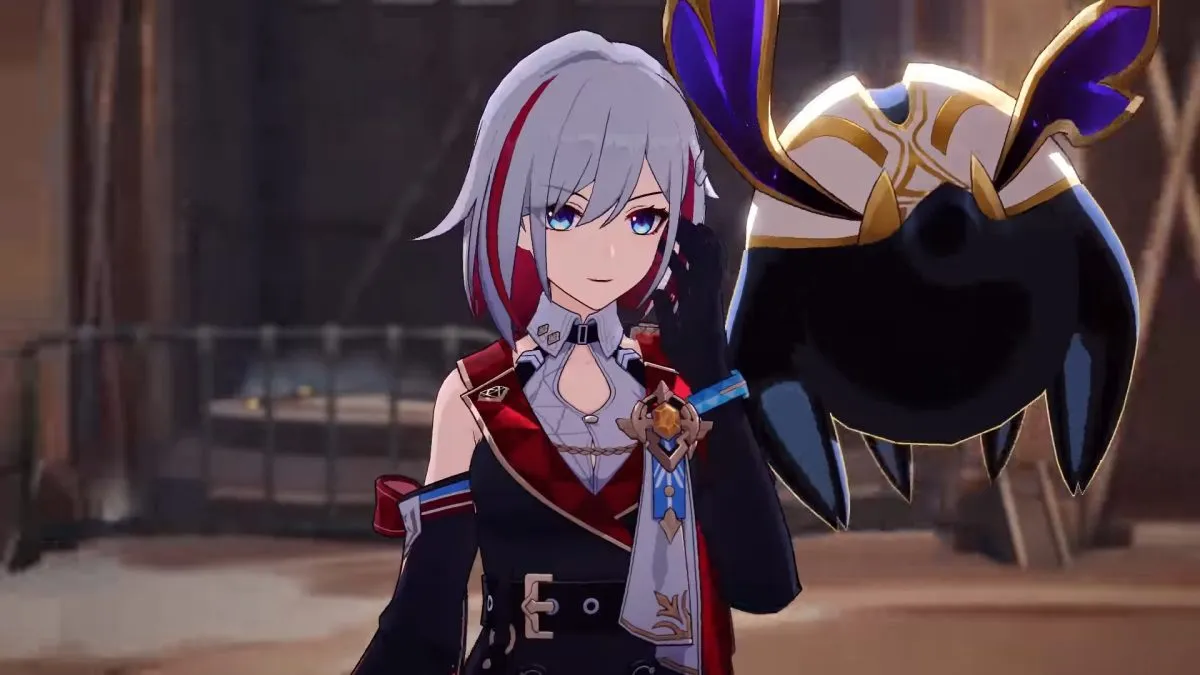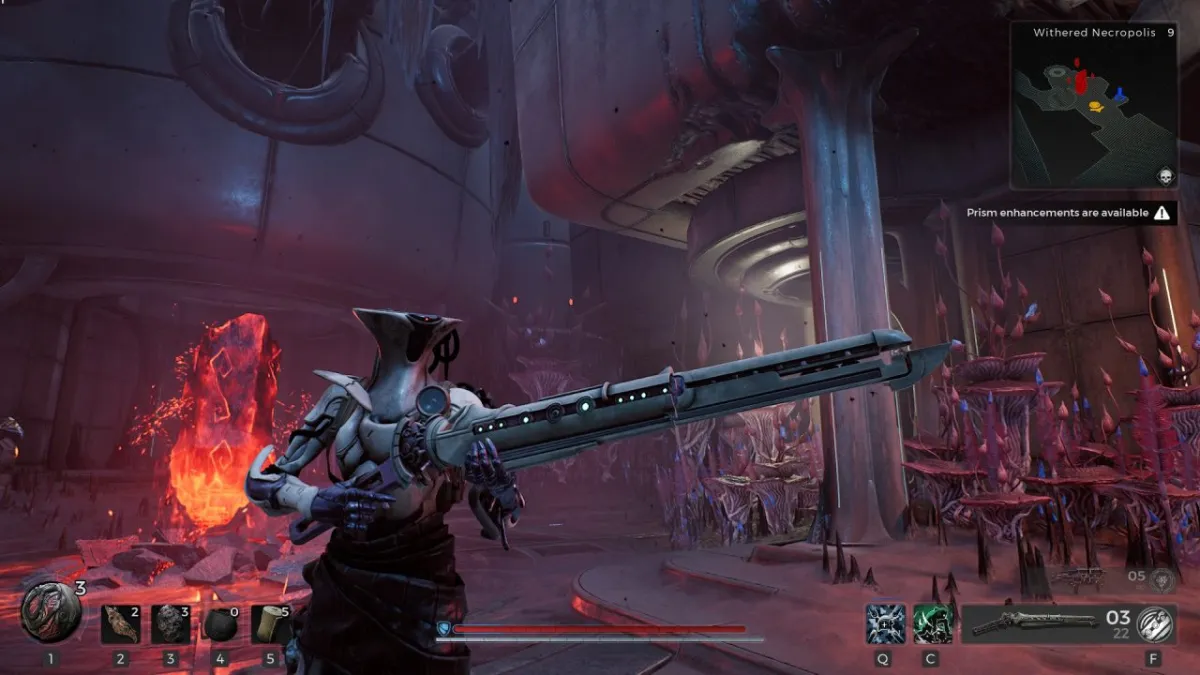Divinity: Original Sin 2 is an expansive RPG with an almost ridiculous number of interactive systems. That makes it amazing for long-time cRPG fans, but also pretty overwhelming for anybody coming to the game without that level of experience. If that overwhelmed feeling describes you, then read on. In this piece I’m going to try to demystify a few things about Divinity: Original Sin 2 and cover a couple of concepts that are worth learning nice and early.
Primarily, this article is for anybody struggling to get through the Fort Joy portion of the game, and for people who want to start the title with a bit of useful fore-knowledge. It’s not a step-by-step walkthrough (though I will mention specific quests here and there), but it will explain some key mechanics and systems.
Oh God Character Creation is Stressful
Character creation is the first boss of Divinity: Original Sin 2. If you’re completely new, it’s probably best to start with one of the pre-determined Origin Stories. You’re still free to choose your own class. Pick one that sounds appealing (the little text summaries are broadly accurate). It’s always possible to diverge and diversify later if you wish. The advise in this article is broad enough to apply to just about any character.
Save, Save, and Save Again
Weird as it might sound, it helps to be aware of the Divinity: Original Sin 2 design mindset. This is an RPG where you can quite easily wander into a fight that’s far outside your ability to handle it. Quicksave is F5 by default. Do not be ashamed of abusing it while you’re figuring out the game. Save after every fight. Let’s emphasise that a little more: Save after every fight.
Early on (and this will probably hold true thoughout) if you encounter a fight where the enemy is a level above yours, it’ll be a tough combat. Encounters where your party is one level lower but outnumber their foes are more do-able. If the enemy two levels above yours, you shouldn’t be there. The game will depict the level of a opponent when you hover the cursor over them (beneath their health and armour bars). You can usually see far enough ahead to be able to do this without initiating a fight.
Use your quicksave-scumming to try stuff out. See what happens when you use a character with a point or two in Thievery to sneak (C by default) and steal something from an NPC. Try some different quest outcomes. Experiment with what Divinity: Original Sin 2 will allow.
Companions, and Where to Find Them
It helps to have some friends. Here’s where you can find all of the Divinity: Original Sin 2 companions in the first proper area (post shipwreck). If you don’t like their default class, you can ask them to change it through an initial conversation (fully respeccing them is possible in Act Two, but that’s many hours away). Click any of the location maps below for larger versions.
Fane is in a semi-hidden area through some vines.
Beast is mending a ship to the West of Fort Joy on the beach.
Ifan is pretty hard to miss, he’s in an argument with some people when you enter the town after the lizard magistar gets exploded.
Lohse is in a very similar area, she’s near the big Divine statute/Fast Travel waypoint.
Sebille is stalking the Lizard called Stingtail, she’s crouched down spying on his living area on the beach.
The Red Prince is staring out to sea to the West, fairly near where you wash up.
Essentials Before Entering Fort Joy
You may well uncover one of the many ways into Fort Joy quite swiftly. That does not mean you should press on right away. I’d recommend doing the following first.
Make sure at least a couple of people in your Divinity: Original Sin 2 party have healing capabilities. Hydrosophists can learn Restoration at level one. The Huntsman line has First Aid at level one. Neither the default Loshe (Hydro) or default Ifan (Hunts) have those for some insane reason, but you can pick them up from vendors. The blue lizard in town, Rezik, sells Hydro spells, and so does a lady on the beach to the West – the one who wants to talk about her husband and kid (Margo). One of Griff’s gang, Butter, sells Huntsman books. See the Pickpocketing section later on for another way to get hold of these.
You can also get a ring with the Restoration spell built in by doing the ‘Murderous Gheist’ quest (the one involving Migo, the guy eating bodies on the beach beyond the elf cave hideout). That can be equipped on anybody.
If you have an undead chap in your party, they heal with poison and are hurt by standard methods. A point in the Geomancer skill opens up a few poison options like Corruption. Maol, the elf splashing around in the water to the South (a bit West of the elf hideout cave) sells Geomancer books.
Locate a Bedroll and put it in your hotbar. You can click on it whenever you’re out of combat to heal everybody up and make them fully rested. Much easier than spamming healing spells or wasting potions.
Look out for a shovel too. You’ll need one to dig up any buried treasures, and to gain access to certain hidden entrances. Lizards can dig without shovels, so if you intend to keep a scaly pal in your Divinity: Original Sin 2 party then you can work around this.
Get the teleport gloves! If you’ve spoken to Gawin about his plan to get one of you out of here, you’ll have a spot with crocodiles marked on your map. If not, just exploring the line of the Western coast after Beast’s spot will bring you into contact with them soon enough. Defeat the crocs (come back later if it seems too tough), and you’ll find the teleport gloves on the corpse of the one that was teleporting around in battle.
The person who equips the gloves can now teleport people and things around the place in combat, and, crucially, out of combat too. They’re very useful for getting people in and out of otherwise inaccessible areas for some extra loot. For example, there’s a cell in the prison beneath Fort Joy that I’m pretty sure is impossible to enter (or leave) without some teleportation.
Once you have teleportation abilities, get two specific chests which will contain goodies. One of the is on top of a broken and ruined bridge close to where you washed up on the beach. The other is where Fane hangs out (the Hidden Alcove). Look for some rainbows and a waterfall, you’ll see it. Teleport it across to you for the rewards (which I think are randomised, but it’s usually something you’ll want).
For that matter, check inside every crate and sack on the island that isn’t coded red for “you’re now nicking something” (unless you want to be stealing, of course). You’ll build up a semi-respectable amount of gold this way, and sometimes find useful bits of low level armour and gear. It can be worth it to take Lucky Charm as a trait for one party member and use them as your dedicated Divinity: Original Sin 2 looter. The Left Alt key highlights things you can pick up, by default.
Make sure somebody in the party has Pet Pal. Ifan starts with it, if you fancy using him. Later on, it seems like the animals start getting some skill/persuasion checks, so it might be worth investing in some persuasion as well (and/or making sure your Pet Pal character has a high Strength/Int/Finesse to pass those).
Do as many quests outside Fort Joy as you can find for the experience points. You can absolutely be level 3, and maybe even level 4, by the time you’re entering the Fort for real. By the time you leave, you can be level 4 or 5.
This isn’t an exhaustive list, but: Visit the elves in their cave, find Lord Withermore (play with the elf cave kid who wants to play hide and seek), deal with Migo in some fashion (if you have a Yarrow flower there’s a peaceful way), talk to the lady who’s lost her kid, fight in the Arena (hatch in Griff’s area), resolve the situation with Griff, Stingtail, and his ‘special oranges’. Exploring the area in general can give you some experience too. Look around. Talk to everyone. By the time you’re level 3 you should have plenty of routes into Fort Joy open to you.
The area beyond Fort Joy is tough too, so if you feel capable of taking on the Magisters inside the Fort, they’re a useful source for more experience and loot. They’re basically concentration camp guards, so don’t feel too bad about returning to slaughter them all at some point (well, maybe feel a little bad about any hounds). Steal all the paintings upstairs too, they sell for an okay price.
Pickpocketing Like a Pro
The not-so-noble art of pickpocketing is worth a special mention. You’ll have to pump a couple of points into Thievery (or wear an item that boosts that stat), but it can absolutely pay off. The number of points dictates the value and volume of things you can steal. It appears you can only pickpocket each NPC once per character with the Thievery skill, so make it count.
To pickpocket, go into stealth mode (C) and maneuver yourself out of everybody’s sight line. This is difficult-to-impossible in places where there are loads of NPCs, but some people and merchants are isolated enough. It can help to have another character distract your target by opening up dialogue with them (then switch back to your pickpocket). Nab what you can, make a getaway with the thief, then end the dialogue with your other character and pull them out of the area too. NPCs always react to being pickpocketed after a little while, and you don’t want to be around and forced to explain yourself with a persuasion check.
You can acquire a whole load of early skill books in various disciplines this way. Or some other gear. Anything you don’t want, you even can sell back to the victim.
Be aware that almost everyone in Divinity: Original Sin 2 has items that you can steal or barter for in the usual manner. Not every vendor makes a big deal about their wares. During almost any dialogue you can click the little trade icon to the left (the hand with gold falling in it) to open the trade panel. This also gives you a nice preview of what you can potentially steal.
Combat Fundamentals
You won’t get very far in Divinity: Original Sin 2 without understanding a few combat fundamentals. First of all, it’s worth knowing that you can toggle between Classic (‘Normal’) and Explorer (‘Easy’) difficulties at will, so if a fight is too tough you can lower the challenge to progress. Then toggle it back up again, if you wish.
O (by default) switches to an overhead tactical camera in fights. This is helpful for avoiding mis-clicks and getting a better idea about lines of sight.
A lot of the time, you know when a fight is about to kick off. Either you see the group of enemies ahead, or you know that pissing someone off in conversation will start combat. Use this knowledge to your advantage by positioning your party ahead of time. For example, if you plan to fight Griff and his gang, stick a ranged guy on the wooden structure ahead of time for some tasty high ground bonuses.
To quickly separate someone from the party (to send them off into position), drag their portrait off to the side. It’ll break the ‘chains’ holding it to the others. In order to reattach after the fight, just drag it back. Many enemies have area of effect skills or spells, so it usually pays to have your group split up a little rather than wandering into a fight as a fat block of four.
Fights in Divinity: Original Sin 2 are, broadly, about using elemental combinations to deny space to the enemy, positioning people on high ground (for ranged), utilising skills to prevent your foes from taking their turns, and whittling down physical and/or magic armour so you can get to the juicy hit points inside.
Fire combined with poison will create an explosion. Fire on Oil will burn. Fire alone will set a Burning state. Water and blood will conduct electricity (setting a Shocked state). Water can also freeze (Chilled state).
Geomancy (oil, poison) complements Pyrokinetic (fire). Hydrosophist (water) complements Aerotheurge (electric). Ranged characters can contribute to these elemental effects with special arrows, and certain skills (like the Red Prince’s fire breath) can give you extra options too. There are many other combinations as well (Necromancy can provide blood for electric charges), but those are the basic sets.
Having one caster to provide the set-up (Geo/Hydro for some oil/water) and another with lower Wits (so they move afterwards) to follow-up with the pay offs (Pyro/Aero for fire/electric) can work really well. As can just having combos like Aero/Hydro on individual mages.
Avoid standing in elemental pools (unless you get a specific benefit for doing so, like undead healing from poison) or positioning yourself next to potentially explosive barrels, because that’s just asking for trouble. Conversely, watch out for enemies foolishly lurking near an explosion-in-waiting. You can also create choke-points by popping off zones of fire, poison, or electrified water/blood that most AI opponents won’t want to cross.
Most spell and skill effects in Divinity: Original Sin 2 won’t have their desired status result (Blinded, Crippled, and so on) while enemies still have their physical/magic armour. Attack types generally target the armour type you would expect; so melee stuff hits physical and magic attacks are defended by magic armour. Once that’s gone, you’ll start seeing status effects.
The conclusion to probably draw from this is that it’s important to make sure you’re focusing consistent attack types on enemies. There’s no point busting through all of the physical armour and then hitting them with a magical attack that’s just going to be soaked up by the magic armour. This may mean there’s a lot of mileage in a party that can deal 100% physical or 100% magical damage, but I’m not far enough into the game to know for sure (you’ll probably always need some variety – I’ve already found one enemy that has all magic armour).
Even if you lean into physical damage as your main focus, the magic users are still vital for additional support; either through buffs, or by using their elemental skills to cut off parts of the battlefield. I’ve found that equipping a mage with a wand and shield can give them a lot of protection. Staffs are nice and all, but your mage will predominantly be at range, and do most of their damage through spells – so a lone wand as a backup ranged weapon is fine. The AI also seems less inclined to go after more armoured members of your party (worth knowing if you stick all your armour on a ‘tank’ character), so it can help your spellcasters stay alive that way too.
The bar at the top of the screen shows the movement order, so if you have the choice between hobbling one of two enemies, go for the one whose move is coming up sooner. Anything you can do to temporarily prevent a foe taking a shot at you (knocking them down, crippling them, blinding them, slowing them) is always worthwhile. The fewer chances Divinity: Original Sin 2’s AI has to attack, the more chance you have of surviving an encounter.
Use the elements to control the battlefield space. Find high ground for ranged characters (seriously, it can be as much as a 35% damage boost). Focus on reducing one armour type where you can. Deploy skills that prevent the enemy from moving or fighting effectively. Those are the fundamentals.
Once you’ve got that down, start thinking creatively with your abilities. See an opportunity to teleport an enemy wizard from their high ground into the middle of a poisonous cloud, then set off a fiery chain-reaction that catches more baddies in the explosion? Do it!
With this knowledge at your command the trip through Fort Joy should be less painful, and you’ll be well set to continue your journey beyond.






















Published: Sep 18, 2017 08:50 am